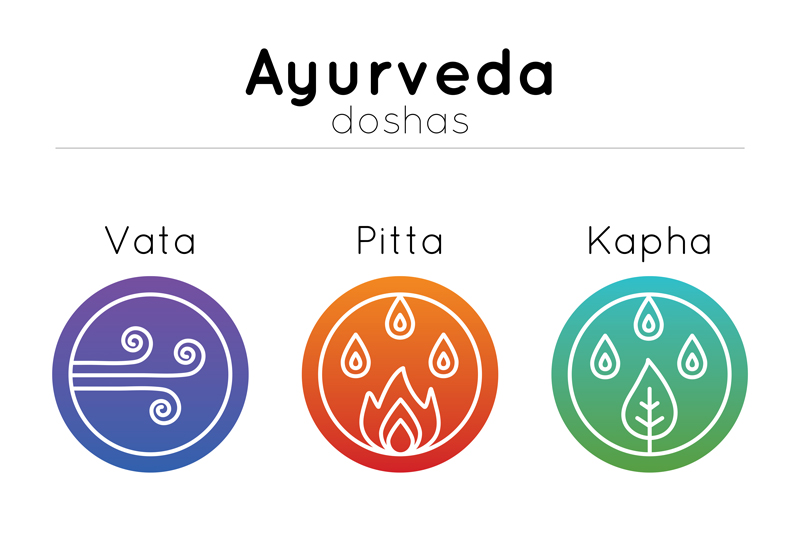The Ayurvedic approach to stress is based on an imbalance in our energetic properties, the doshas (vata, pitta, kapha). Stress in Ayurveda is seen predominantly as a disturbance to our vata dosha, the energy of movement that is formed from the space and air elements. Vata dosha is intrinsically related to the nervous system. Over extended periods, vata can wreak havoc on the mind and body. This is the negative and undesired impact that we commonly know as stress.
Balancing vata is the key to managing stress in the body and mind as well as supporting wellness and longevity. There is no single solution or one-size fits all to managing stress. However, these are 4 ways to manage stress using Ayurvedic techniques.
- Spend Time in Nature: Vata is the energy of movement and is composed of the air and space elements. On the premise that like increases like and opposites bring balance, we want to invoke the qualities of water and earth that can bring balance. Take a walk in the woods, up the mountains, by a lake or the sea. Kick back your shoes and really immerse with nature by walking barefoot.
- Practice Breath Control (Pranayama): Pranayama is literally translated as breath control. Why is it that when we feel panicked we immediately turn to the breath? The breath is our life force energy and by deepening and elongating the breath we can increase prana and calmness within our mind and body.
- Oil Application (Abhyanga): Traditionally the application of oil and self-massage is done before the shower with warm oil starting at the top of the head and working your way down to the toes. It is not only nourishing and nurturing but very hydrating for the skin. As the skin is the largest organ, the application of oil has a profound calming effect on the nervous system.
- Regularity and Routine: The single most important
balancing factor for vata is maintaining regularity in our daily
routines. This is especially critical around eating and sleeping habits. Eat meals at the same time every day with 3-4 hours between meals. Allow at least 2 hours to prepare for bed by avoiding screens and bright lights and anything that stimulates or aggravates the mind and body. Apply a touch of lavender essential oil to the soles of your feet to promote sleep.
Also, I recommend this recipe for Kitchari Soup, commonly used in Ayurvedic medicine. Kitchari is a potent blood purifier. In Traditional Chinese Medicine, we use the mung bean to strip environmental toxins out of the tissues which is especially helpful for the reproductive organs, liver, and thyroid gland health.
Dr. Roberts is pleased to offer Natural Nutmeg readers a 20-minute complimentary phone consultation. You’ll receive a Dosha Quiz and discover your individual constitution or find out how Ayurveda and Acupuncture can improve your unique concerns. Email: skye@drskyeroberts.com or call 917.538.2080 for details.
Dr. Skye Roberts is a Doctor of Acupuncture and Board-Certified Chinese Herbalist, Certified Ayurvedic Practitioner and Reiki Master. She offers a uniquely integrated healthcare approach, treating a wide variety of conditions, with a particular interest in psycho-emotional conditions, digestive disorders, post-stroke rehabilitation, neurological conditions, pain management, endocrine disorders, and women’s health and fertility. For more, visit: www.drskyeroberts.com. Dr. Roberts is an independent practitioner associated with Hartford Family Institute.
